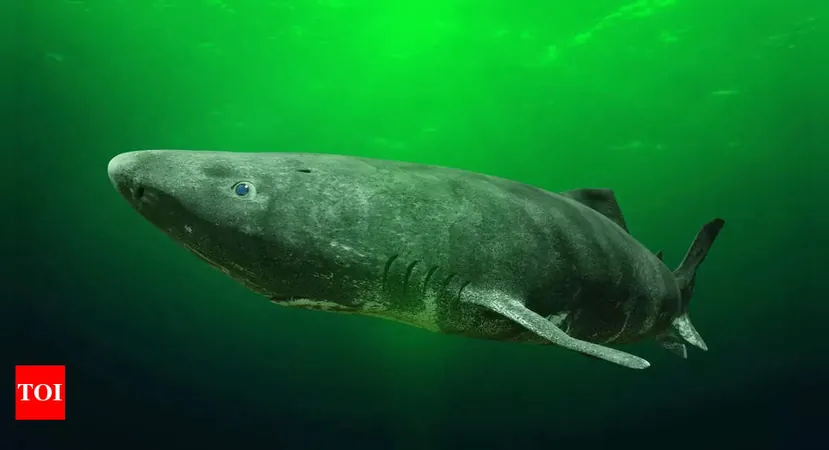
Uncovering the Secrets of the Greenland Shark: The Ocean's Mystical 500-Year Resident
2024-09-29
Introduction
The enigmatic Greenland shark, scientifically known as *Somniosus microcephalus*, lurks in the icy depths of the Arctic and North Atlantic Oceans, boasting a staggering potential lifespan of up to 500 years. This astonishing longevity positions it among the longest-living vertebrate species on the planet, with many individuals living well beyond 200 years. But what is the secret behind such extraordinary existence?
The Role of Metabolism
At the heart of the Greenland shark's impressive lifespan is its exceptionally slow metabolism. Unlike typical animals, where metabolic rates tend to decline with age, the metabolism of the Greenland shark remains strikingly steady throughout its life. Recent research, led by doctoral candidate Ewan Camplisson from the University of Manchester and presented at the Society of Experimental Biology Conference in July 2024, highlighted this unique attribute through enzyme assays conducted on muscle tissue samples from sharks of varying ages. Findings revealed minimal metabolic variation despite aging, a characteristic that significantly reduces cellular wear and damage.
Delayed Sexual Maturity
Additionally, the Greenland shark reaches sexual maturity at an astonishingly late age of about 150 years, allowing it to conserve energy into maintenance and cellular repair rather than reproduction. This extended maturity contributes to their longevity but also makes them vulnerable to environmental threats and human influences, as they reproduce infrequently and take longer to recover from population declines.
Impact of Cold Environment
The shark's frigid habitat also plays a critical role in its long life. Found at depths of up to 2,647 meters (8,684 feet) where temperatures linger around 29°F (minus 1.8°C), the extreme cold environments slow their metabolic processes. This significantly reduces bodily wear and tear, a trait observed in many other long-lived species inhabiting cold waters.
Implications for Human Health
The study of Greenland sharks is not just a quest to satisfy curiosity; it holds significant implications for human health. The mechanisms through which these sharks manage to stave off age-related decline could unlock new pathways in understanding human aging, potentially leading to breakthroughs in anti-aging treatments and enhanced cardiovascular health.
Conclusion
As we continue this journey of exploration, the Greenland shark remains a beacon of longevity, urging scientists to delve deeper into the mysteries of life and the possibilities of extending our own. Could the key to a longer, healthier life lie in the depths of the Arctic? Only time will tell.


 Brasil (PT)
Brasil (PT)
 Canada (EN)
Canada (EN)
 Chile (ES)
Chile (ES)
 España (ES)
España (ES)
 France (FR)
France (FR)
 Hong Kong (EN)
Hong Kong (EN)
 Italia (IT)
Italia (IT)
 日本 (JA)
日本 (JA)
 Magyarország (HU)
Magyarország (HU)
 Norge (NO)
Norge (NO)
 Polska (PL)
Polska (PL)
 Schweiz (DE)
Schweiz (DE)
 Singapore (EN)
Singapore (EN)
 Sverige (SV)
Sverige (SV)
 Suomi (FI)
Suomi (FI)
 Türkiye (TR)
Türkiye (TR)